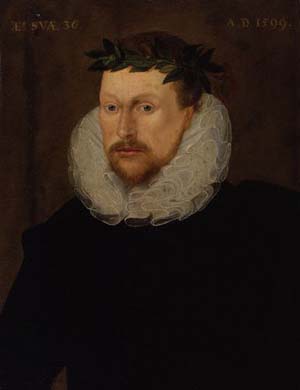The Baths
Michael Drayton
Then Bradon gently brings forth Avon from her source:
Which southward making soon in her most quiet course.
Receives the gentle Calne: when on her rising side.
First Blackmoore crowns her bank, as Peusham with her pride
Sets out her murmuring shoals, till (turning to the west)
Her Somerset receives, with all the bounties blest
That nature can produce in that Bathonian spring,
Which from the sulphury mines her medicinal force doth bring;
As physic hath found out by colour, taste, and smell,
Which taught the world at first the virtue of the well;
What quickliest it could cure: which men of knowledge drew
From that first mineral cause: but some that little knew
(Yet felt the great effects continually it wrought)
Ascribed it to that skill which Bladud hither brought,
As by that learned king the baths should be begun;
Not from the quickened mine, by the begetting sun
Giving that natural power which by the vigorous sweat
Doth lend the lively springs their perdurable heat
In passing through the veins, where matter doth not need;
Which in that minerous earth inseparably doth breed;
So Nature hath purveyed that during all her reign
The baths their native power for ever shall retain:
Where time that city built, which to her greater fame,
Preserving of that spring, participates her name.
Bath has been known for its natural hot springs since Roman times and the Roman baths have been preserved. The water bubbles up at a temperature of 46 degrees Celcius (115 Farenheit). The water in the Roman Baths is now regarded as unsafe to swim in, but new boreholes allow visitors to take the waters in modern baths nearby.
